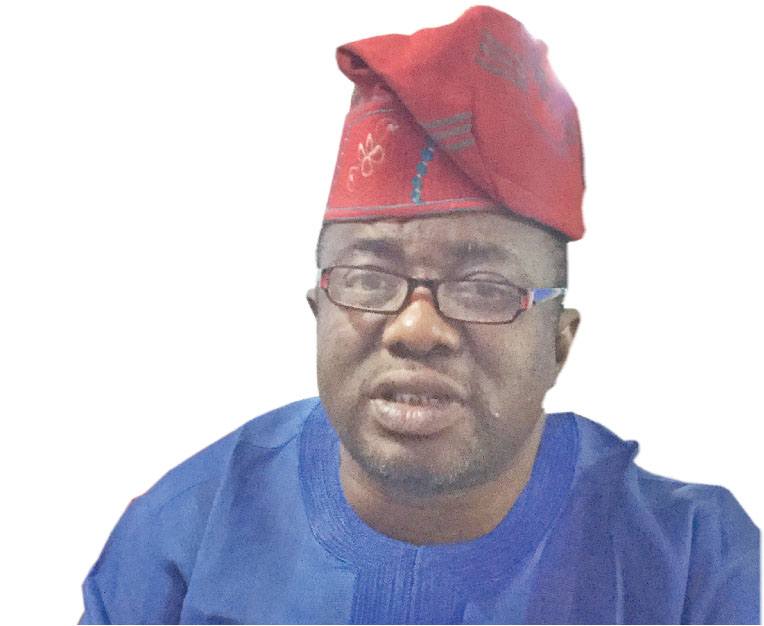The #EndSARS protest raging across Nigeria has poignantly raised the salience of the advocacy for state police.
It is not just the Special Anti Robbery Squad (SARS) that needs reforms. It’s the entire unitary policing system.
The Nigerian police is not people-oriented. By its configuration, its rank and file are oriented to see members of the civil society as enemies or objects of extortion.
The colonial police established by the British was created to exploit the labour of the indigenous peoples of Nigeria and facilitate expropriation of their natural resources for the economic advancement of Britons.
The colonial police was, primarily, designed not to protect the indigenous peoples but to subject and subjugate them to the will of a foreign power. Hence, it killed, maimed, and enforced payment of taxes without any commensurate public service. It was a police at whose sight whole villages eloped into the forest because they had no means of paying the white man’s tax in his strange currency.
At independence, the oppressive police structure was simply taken over by the indigenous ruling authorities. And it’s name underscored its purpose, which was to exercise force: Nigeria Police Force.
To make matters worse, local and regional police formations that served as a buffer between the colonial police under the control of the Federal Government were scrapped upon military intervention in government in 1966. That marked the beginning of a unitary police system in a federal state. And Nigeria is the only known federation living with this affliction and aberration.
Meanwhile, the horribly dehumanising mode of police training continues post-independence. What is the intent of the torture that is embedded in our police training if not to unleash them on the public like mad dogs?
There was this story about the refusal of Igbo policemen drawn from Enugu to shoot in order to quell the Aba women rioting in 1929 over obnoxious taxation, exclusionist native court system, and the tyranny of the much-derided Warrant Chiefs.
The Igbo policemen refused to shoot Igbo women because, as they say, blood is thicker than water. This led the colonial authorities to deploy policemen from the northern parts of the country who, in no time, brought the riot to an end after felling 51 women and one man!
The import of this recollection is the need to add state police to the current policing architecture. SARS, the springboard of the ongoing protest, is so brutal without necessarily being effective, because it is aloof from the people it is meant to protect against armed criminals.
And the replacement of SARS with Special Weapons and Tactics (SWAT) merely begs the question. As Shakespeare asks, “What’s in a name? That which we call rose, by any other name, will smell as sweet”.
What we need is a police that considers itself a stakeholder in its operational environment and is, indeed, a stakeholder.
This type of police can only emerge through the adoption of a state police system in addition to the existing federal police. In essence, policing should become a subject within the concurrent list of the thoroughly flawed 1999 Nigerian Constitution.
As it happened with the colonial Enugu policemen who couldn’t shoot rioting Igbo women in Aba in 1929, policemen drawn from the community they are meant to protect in today’s Nigeria will not be prone to wanton killing and molestation of their own people. Rather, they will be prone to carrying out their duties professionally, with courtesy and due sense of responsibility.
So, state police is the way to go. This then leads us to the flogged issue of restructuring the Nigerian federation. Clearly, a centralised or unitary police system has failed us. It’s inadequate and holding onto it will only widen the space of insecurity of all kinds in Nigeria.
But the way anti-#EndSARS protesters have emerged in northern states like Sokoto, Zamfara, Katsina and Kano as a counterpoise to the #EndSARS protesters in all the southern states, Abuja, and Plateau state is antithetical to state police, which the north has always opposed. This is a real cause for deep introspection on the feasibility of national integration in this artificial state created and christened Nigeria by the British.
It is all the more concerning that the opposition to the #EndSARS campaign is coming from the northern states where police has failed woefully in its responsibility of protecting the citizenry and its job has virtually been taken over by the military.
Some have attributed the rather befuddling stance of the northern protesters to their immunity from police harassment and humiliation, unlike their southern counterparts who have a litany of tales of woe to tell. It’s a case of different strokes for different folks – a fallout of the trend towards “one country, two standards” prevalent under the Buhari administration.
Clearly, #EndSARS is symptomatic of a deeper malaise at the heart of the rapidly loosening fabric that holds Nigeria together. I hope we embrace state police forthwith to strengthen the fabric.
*Prof. Olufunmilade is Director, Buratai Center for Contemporary Security Affairs, Igbinedion University Okada, Edo State, Nigeria.








